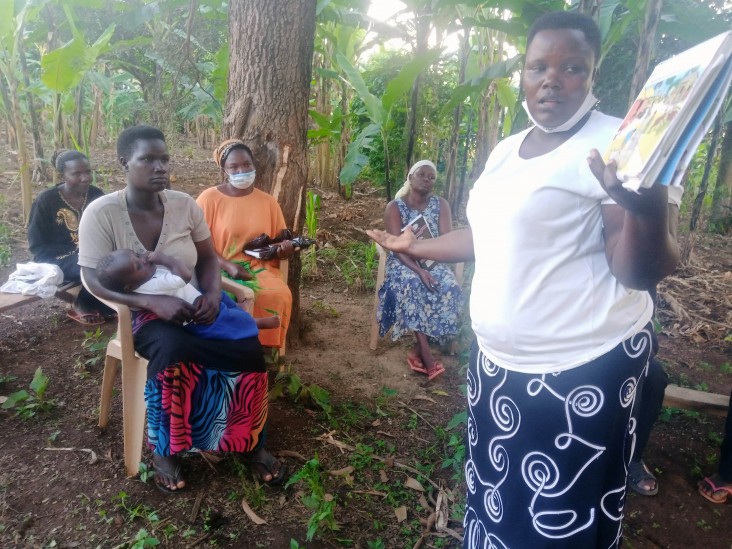Speeches Shim

“I got married so young with no knowledge of raising healthy children,” says Sharon, a 27-year-old from Budaka district. “My children were sickly and malnourished.” She has six children between the ages of 9 years and 5 months, all of whom struggled with diarrhea, malaria, and malnourishment.
During her last pregnancy, she was invited to join a family care group that had been established by USAID’s Regional Health Integration to Enhance Services in Eastern Uganda activity. A family care group is a group of lead mothers who are selected from the community to promote behavior change among their peers under the supervision of by Village Health Team members. ‘Leader Mothers’ educate pregnant and lactating mothers, as well as caregivers of children under two years, to improve key care practices during the child’s first one thousand days of life. Groups members meet twice a month to share key messages and practices to improve their health, nutrition, hygiene, and sanitation status.
While in the care group, Sharon learned how to prepare nutritious meals and feed her children. She now has a vegetable garden where she has a daily supply of vegetables for her family. Her youngest child is exclusively breastfeeding at 5 months, has up-to-date immunization, and is much healthier than the other children were at the same age.
“Being a member of the group has taught me how to prepare nutritious meals for my children. I always have vegetables as part of my meals every day because of the vegetable garden I planted with my group members. We also sell to get some money for household needs and food.”
Through peer support from fellow group members she constructed a latrine and tippy tap to improve her household sanitation and hygiene, and now her children hardly ever get diarrhea episodes. With the support and encouragement of the care group members she accessed family planning services to prevent unplanned pregnancy.
Through this activity, USAID has established 635 care groups in 17 districts and trained 1,289 health workers in Eastern Uganda.
“Since I joined the group, I am a different woman and my children are healthy. We do not go to the health center with illnesses like diarrhea and malaria as often as we did before. I am happy and will continue to teach my colleagues what I learnt.”
Sharon is now happy and optimistic that her life, that of her children and the community members will continue improving because of the learnings they have received due to their participation in care groups. Due to her activeness and acquired skills of supporting others, she has now been supported to create a new group as a leader mother.

Comment
Make a general inquiry or suggest an improvement.